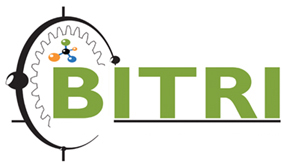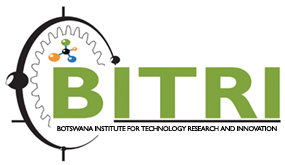Climate Change Division
Successful actualization of climate change adaptation and mitigation requires sound
scientific base along with stakeholder participation.
BITRI Climate Change Division focuses on understanding the impact of climate change on Botswana’s economic sectors such as agriculture, water resources, energy and health. Droughts, extreme events, increasing temperatures, vector-borne disease outbreaks and changes in water availability are some of the significant risks posed by climate change. This understanding is done through improving climate science and impact assessments, and incorporating the views of local communities and decision makers on potential adaptation responses to climate impacts. The Division is developing an Adaptation Framework to integrate climate risks into development planning.
Major research areas include:
Climate proofing growth and development:
- Provide support to shift government plans through integration of climate change into development plans, policies and programmes to deliver sustainable economic growth, reduce poverty and build resilience to changing climate.
- Analyze the effects of climate change and potential responses in important crosscutting areas, such as economics and jobs, consumer choice, and environmental justice.
Climate Projections:
- Incorporate emerging climate science into risk assessment using probabilistic climate change projections.
- Develop and adapt methods to downscale global climate projections to local scale.
Monitoring:
- Develop and implement methods for monitoring climate to better inform policymakers and stakeholders about how Botswana’s climate is changing and the associated impacts.
Reducing GHG Emissions:
- Investigate the multiple pathways that could achieve climate goals related to emission reductions from the energy, transportation, agriculture, water, waste management, and industrial sectors.
- Refine emissions accounting methods, especially for short-lived climate pollutants with high potential for warming the atmosphere and for difficult-to-quantify sectors.
- Give priority to research that would concurrently reduce emissions and make Botswana more resilient to climate change.
- Advance innovative technologies and understanding of consumer behavior
Preparing for a Changing Climate: Incorporate new climate science into a risk assessment framework using probabilistic climate change projections.
Socio-economic Effects of Climate Impacts and Policy Responses: Analyze the effects of climate change and potential responses in important crosscutting areas, such as economics and jobs, consumer choice, and environmental justice.
Synergies of Reducing Emissions and Climate Risk: Give priority to research that would concurrently reduce emissions and make Botswana more resilient to climate change, while providing other co-benefits such as Climate Smart Agriculture.
Climate Smart Agriculture Manual:
The Climate Smart Agriculture Insights from Practice manual based on a three-and-a-half years project, involving Ministry of Agricultural Development and Food Security (MoADFS) Extension Staff and BITRI Researchers working with smallholder dryland arable farmers in Kgalagadi South and Barolong sub districts.
Download Manual
